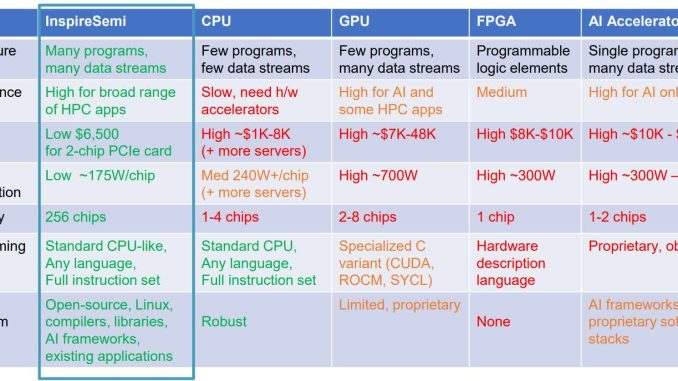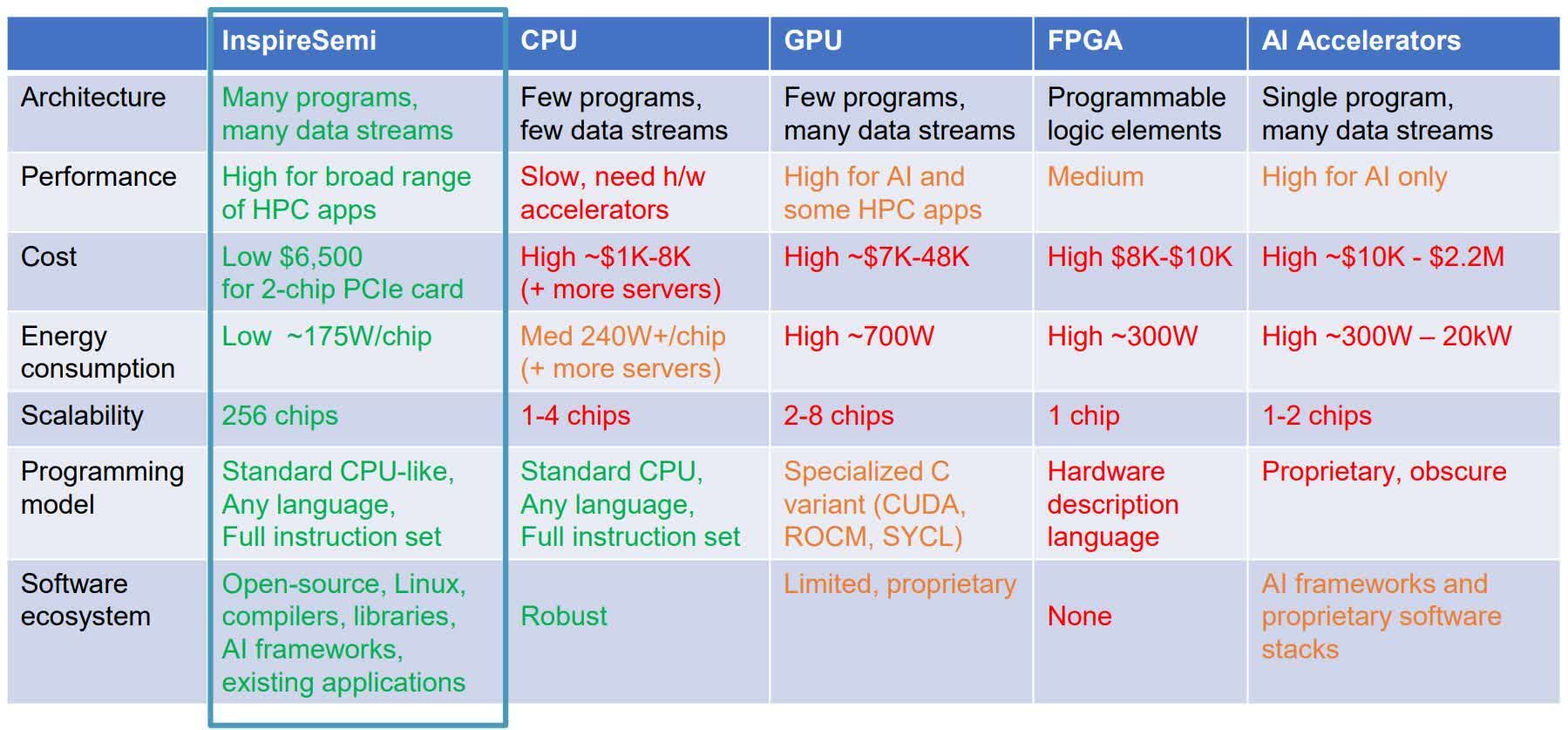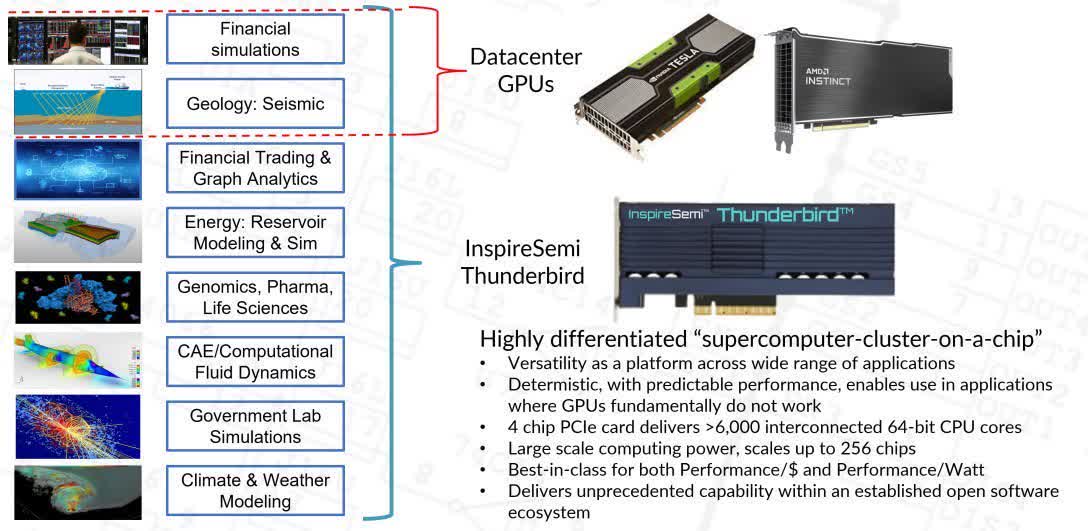
One thing to look ahead to: InspireSemi is having a bet large on its “supercomputer-on-a-chip” product referred to as Thunderbird. The corporate believes that leveraging open-source RISC-V structure and agnostic tool compatibility makes its PCI add-in card extra inexpensive, out there, and environment friendly than its competition.
The Austin-based semiconductor corporate InspireSemi introduced that it has tapped out its first Thunderbird “supercomputer-on-a-chip” comprising 1,536 64-bit superscalar RISC-V CPU cores. 4 chips can also be put in on a unmarried accelerator card, in a sort issue very similar to a GPU. This configuration brings the full selection of cores in line with card to six,144, with the possible to scale to multi-processors in one cluster hooked up the usage of high-speed serial interconnect.
That appears like numerous horsepower, however who’s it aimed toward? InspireSemi says their product addresses a number of important spaces of HPC workloads.
Thunderbird makes use of same old CPU programming fashions and compiles with out growing workloads on customized platforms like Nvidia’s CUDA or AMD’s ROCm. This implies present HPC workloads working on CPUs will have to have little to no customized code to run in Thunderbird. Additionally, the product is adaptable to present server infrastructure as it is a PCI add-on card, permitting InspireSemi to achieve extra consumers who would not have the price range to construct out new infrastructure and amenities.
Consistent with InspireSemi, the processor’s open-source design and agnostic tool permits them to goal many industries: “Thunderbird speeds up many important packages in vital industries that different approaches don’t, together with lifestyles sciences, genomics, clinical units, local weather alternate analysis, and packages that require deep simulation and modeling” stated the corporate’s founder and CTO Andy Grey.
Thunderbird method to inherit the ability potency of the RISC-based structure. InspireSemi claims a 30-60% energy potency in comparison to in a similar way succesful answers. One metric is as much as 24 FP64 TFLOPS at 50 GFLOPS/W (480W). The comparability is made in opposition to Nvidia’s Ampere A100 at 19.5 FP64 TFLOPS, it sounds promising making an allowance for that Thunderbird’s pricing would get started at $6,500.
The rate at which corporations are using open-source answers is outstanding. The Unified Acceleration Basis’s (UXL) project is to broaden common requirements for vendor-agnostic {hardware} and tool, with Intel being probably the most primary participants thru its oneAPI framework.
If open-source tasks for development a extra open platform proceed to achieve momentum, then corporations like InspireSemi could have a vivid long run.



Leave a Reply